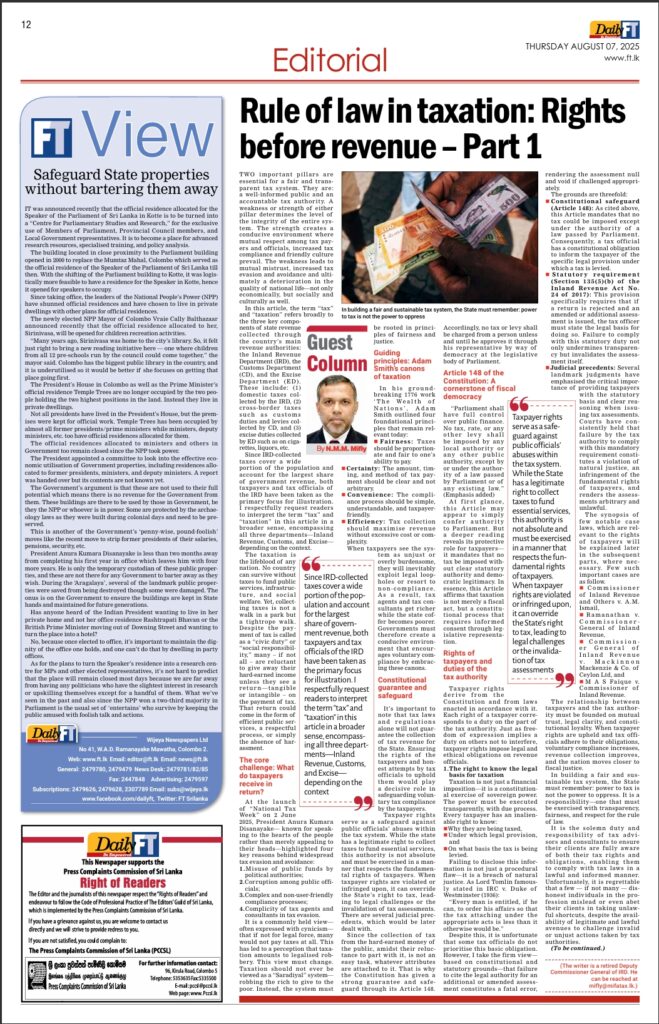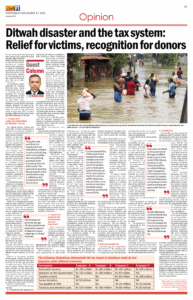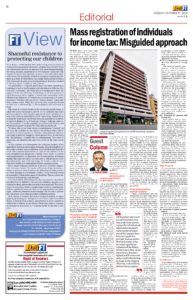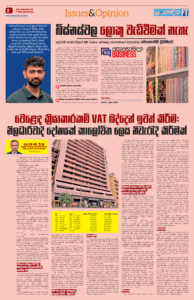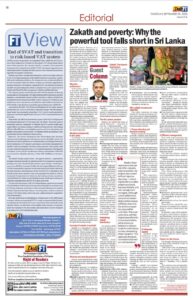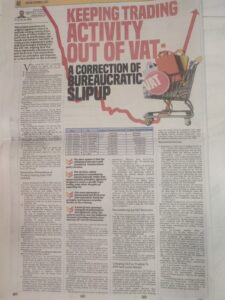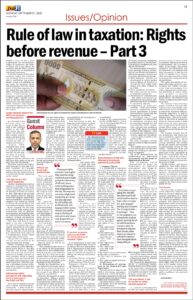Taxation is the backbone of a functioning society—but it should never cross the line into oppression. In “Rule of Law in Taxation: Rights before Revenue,” I emphasize that the State’s power to tax is not a blank check; it must be exercised with respect for the fundamental rights of every taxpayer. Article 148 of the Constitution makes this clear: no tax can be imposed without parliamentary approval, anchoring taxation in the principles of democracy and fairness. When tax officials sidestep these protections or neglect to reveal the legal grounds for their actions, it’s more than an error—it’s a breach of justice that makes such acts unlawful and erodes public trust.
This is the heart of the matter: the power to tax must always be matched by accountability, transparency, and unwavering respect for citizens’ rights. Only then can we build genuine trust, inspire voluntary compliance, and strengthen the foundations of fiscal democracy.
Stay tuned—this is just Part 1. In the next article, we’ll dive deeper into taxpayer rights and explore the landmark cases that have shaped Sri Lanka’s taxation landscape.
Part 02: Rule of law in taxation: Rightsbefore revenue – Part 2 – Mifa Tax Consultation
Part 03: Part 3—Rule of law in taxation: Rightsbefore revenue – Mifa Tax Consultation

